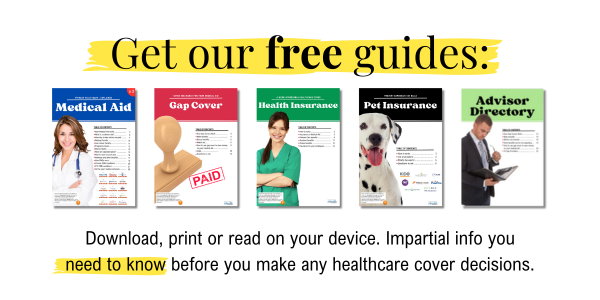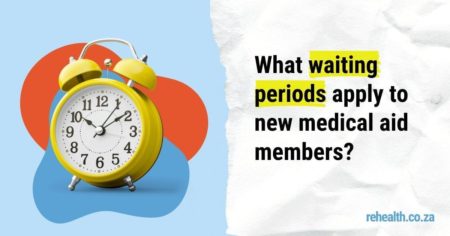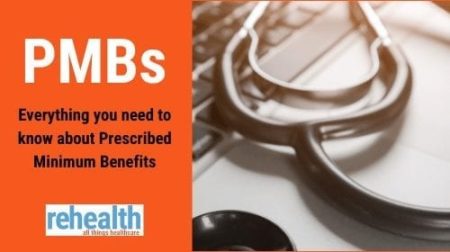Medical Aid Schemes obligations re PMBs
By law, the medical scheme have to cover the diagnosis, treatment and management of the 270 pre-defined conditions, including most cancers. As a scheme member, you will not be required to make co-payments or use your savings for this treatment, even if it is done out-of-hospital.
If you are unfamiliar with PMBs, we have a short introduction here.
Example:
Asthma is a PMB condition. Your medical aid must pay for the diagnosis of your asthma, as well as for the ongoing treatment. This treatment includes out-of-hospital visits with a specialist, various tests and your monthly pump. If you follow your medical aid guidelines, you will not be required to pay out of pocket for any of this.
Nevertheless, the PMB regulations are not a free-for-all-ride. There are important restrictions of which you need to be aware.
You might have to use DSPs (Designated Service Providers)
DSPs are Designated Service Providers. You will see this acronym used often in medical aid brochures. DSPs are providers chosen by some schemes to provide the healthcare services specifically for PMBs. (Although some schemes also use the DSP concept for services other than PMBs).
If a scheme requires you to use DSPs for your condition, and you choose to use providers other than the DSPs, the scheme can require you to pay the difference between what your provider charges and what the DSP would have charged.
Nevertheless, a medical aid scheme cannot refuse to pay your PMB claim just because you did not use a DSP. The scheme needs to pay at least the portion that the DSP would have charged (and you pay the difference as a co-payment).
Can you be forced to use a State facility?
Yes.
It is perfectly legal for schemes to assign state facilities as DSPs, and many schemes do just that. That means that, while you are a member of those plans, you will be required to (most likely) receive PMB treatment from a state facility, even though you are a member of a private medical aid scheme.
We’ve tried to identify all the open schemes that do this, and you can find your plan here to check your plan’s benefits. Always speak to your broker or scheme to confirm benefits.
PMB protocol and PMB level of care
The government has identified and listed “treatment pairs” for all 270 PMB conditions, which outline the level of care a PMB patient needs to have funded by a scheme. For example,
| CODE | CONDITION | TREATMENT |
|---|---|---|
| 906A | Acute generalised paralysis, including polio and Guillain-Barre | Medical management; ventilation and plasmapheresis |
| 341A | Basal ganglia, extra-pyramidal disorders; other dystonias | NOS Initial diagnosis; initiation of medical management |
| 950A | Benign and malignant brain tumours, treatable | Medical and surgical management which includes radiation therapy and chemotherapy |
So, for example, if you have a malignant brain tumour that is treatable, you will be able to receive radiation and chemotherapy regardless of what medical aid plan you are on. Your condition would also qualify for “medical management”.
What does “Medical management” mean?
The government has defined it as follows:
“Where the treatment component of a category .. is stated in general terms (i.e.”medical management” or “surgical management”) it should be interpreted as referring to prevailing hospital-based medical or surgical diagnostic and treatment practice for the specified condition. Where significant differences exist between Public and Private sector practices, the interpretation of the Prescribed Minimum Benefits should follow the predominant Public Hospital practice,….”
In other words, the level of care that you need to receive should at minimum be the level of care that you would receive if you were a patient of the state, in public facilities. However, in most cases you will receive these services from private facilities, unless your plan specifies “state facilities” only (see above).
Note that this is the minimum level of care, as required by law. Many schemes/plans offer more healthcare coverage than the minimum required by law. On the other hand, many plans can deny you some available treatment because it falls outside the “PMB level of care”. This is especially true for entry-level plans.
Generally, the more expensive your plan, the more cover you will receive over and above the minimum required by PMB regulation.
Should medical aid pay for diagnosis of a PMB condition?
For example, if you present with certain symptoms of which the cause is unknown, and tests need to be performed, should the medical aid pay for these even if no one knows whether the results will show a PMB condition or not? The Council of Medical Schemes has this to say:
Hospital treatment where the diagnosis is uncertain and/or admission for diagnostic purposes.
Urgent admission may be required where a diagnosis has not yet been made. Certain categories of prescribed minimum benefits are described in terms of presenting symptoms, rather than diagnosis, and in these cases, inclusion within the prescribed minimum benefits may be assumed without a definitive diagnosis.
In other cases, clinical evidence should be regarded as sufficient where this suggests the existence of a diagnosis that is included within the package.
Medical schemes may, however, require confirmatory evidence of this diagnosis within a reasonable period of time, and where they consistently encounter difficulties with particular providers or provider networks, such problems should be brought to the attention of the Council for Medical Schemes for resolution.
We interpret this to mean that where your doctor is sufficiently sure that the presence of clinical evidence is a strong suggestion of a presence of a PMB, the medical aid should pay for the tests to diagnose the PMB, even if the tests eventually prove the absence of the PMB.






